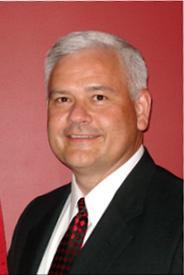FOR IMMEDIATE RELEASEÂ Â Â
October 13, 2009
CONTACT:Â Â Â Ryan Fletcher 202-641-0277 [email protected]
                 Adam Eidinger 202-744-2671 [email protected]
Farmers, Hemp Industry Leaders Arrested for Planting Industrial Hemp at DEA Headquarters in Act of Civil Disobedience to Protest 'Reefer Madness'
Fed Up Captains of Hemp Industry Plant Hemp Seed on DEA's Lawn with Ceremonial Shovels
DEA's Continued Blockade of State Industrial Hemp Programs Violates Common Sense as well as Obama's Presidential Directive to Federal Agencies to Respect States' Rights
WASHINGTON, DC - At approximately 10am this morning, North Dakota farmer Wayne Hauge, Vermont farmer Will Allen, and fed up American entrepreneurs, who have dedicated their livelihoods to developing and marketing healthy, environmentally-friendly hemp products, for the first time turned to public civil disobedience with the planting of industrial hemp seed at DEA headquarters (700 Army Navy Dr Arlington, VA 22202) to protest the ban on hemp farming in the United States. Even though the U.S. is the largest market for hemp products in the world, and industrial hemp is farmed throughout Europe, Asia and Canada, not a single American farmer has the right to grow the versatile crop which is used for food, clothing, body care, paper, building materials, auto paneling and more.
Hoping to focus the attention of the Obama Administration on halting DEA interference, North Dakota Farmer Wayne Hauge; Founder of Cedar Circle Organic Farm in Vermont Will Allen; Hemp Industries Association (HIA) President Steve Levine; Dr. Bronner's Magic Soaps President David Bronner; Vote Hemp Communications Director Adam Eidinger and Founder of Livity Outernational Hemp Clothing, Issac Nichelson were arrested while digging up the DEA's lawn to plant industrial hemp seed imported from Canada. At this time, they are currently being held in Arlington County jail and are awaiting charges. They are expected to be released later this afternoon and will be available for interviews upon release. The six protesters planted hemp seeds with ceremonial chrome shovels engraved with:
Hemp Planting Oct. 2009 ~ DEA Headquarters ~ American Farmers Shall Grow Hemp Again ~ Reefer Madness Will Be Buried
Mr. Hauge is licensed by North Dakota to cultivate and process non-drug industrial hemp, just as Canadian farmers across the border have done profitably for over ten years supplying the booming U.S. market. However, the DEA refuses to distinguish non-drug industrial hemp cultivars grown for millennia for seed and fiber and has unconstitutionally blocked all state hemp programs such as North Dakota's. Mr. Hauge, along with North Dakota State Rep. David Monson, sued the DEA in the U.S. District Court of North Dakota in 2007, and the case is currently before the Eighth Circuit Court of Appeals. "In recent years there has been strong growth in demand for hemp in the U.S., but the American farmer is being left out while Canadian, European and Chinese farmers fill the void created by outdated federal policy," said fourth-generation farmer Hauge. "When hemp is legalized, land grant universities across the nation will develop cultivars suitable to different growing regions to enhance yield and explore innovative uses such as cellulosic ethanol."Â
Pictures and video of the action for free and unrestricted use, along with hemp farming footage and background information are available upon request in hardcopy and online. An HIA produced video of the action will also be posted, after 6pm on 10/13 at: www.votehemp.com/DEAhempplanting.html
In the back drop of the spectacle at DEA headquarters, dozens of hemp business owners in town attending the HIA convention over the weekend fanned out across Capitol Hill to lobby lawmakers in support of hemp legislation introduced by Representatives Ron Paul (R-TX) and Barney Frank (D-MA) that would permit states to cultivate non-drug industrial hemp under state industrial hemp programs. Nine states have such programs, but their implementation has been blocked by DEA bureaucratic intransigence. This spring, however, President Obama instructed federal agencies to respect state laws in a presidential directive on federal pre-emption:
"Executive departments and agencies should be mindful that in our federal system, the citizens of the several States have distinctive circumstances and values, and that in many instances it is appropriate for them to apply to themselves rules and principles that reflect these circumstances and values. As Justice Brandeis explained more than 70 years ago, 'it is one of the happy incidents of the federal system that a single courageous state may, if its citizens choose, serve as a laboratory and try novel social and economic experiments without risk to the rest of the country.'"
- Source: www.whitehouse.gov/the_press_office/Presidential-Memorandum-Regarding-Preemption/
Vote Hemp and the HIA are dedicated to a free market for low-THC industrial hemp and to changes in current policy to allow U.S. farmers to once again grow this agricultural crop. Dr. Bronner's Magic Soaps President and Vote Hemp Director David Bronner stated: "Dr. Bronner's has grown into the leading natural soap brand in the U.S. since incorporating hemp oil in 1999, due in significant part to the unsurpassed smoothness it gives our soaps. As an American business, we want to give our money to American farmers and save on import and freight costs. In this difficult economy, we can no longer indulge the DEA's self-serving hemp hysteria."
#Â #Â # Â |




